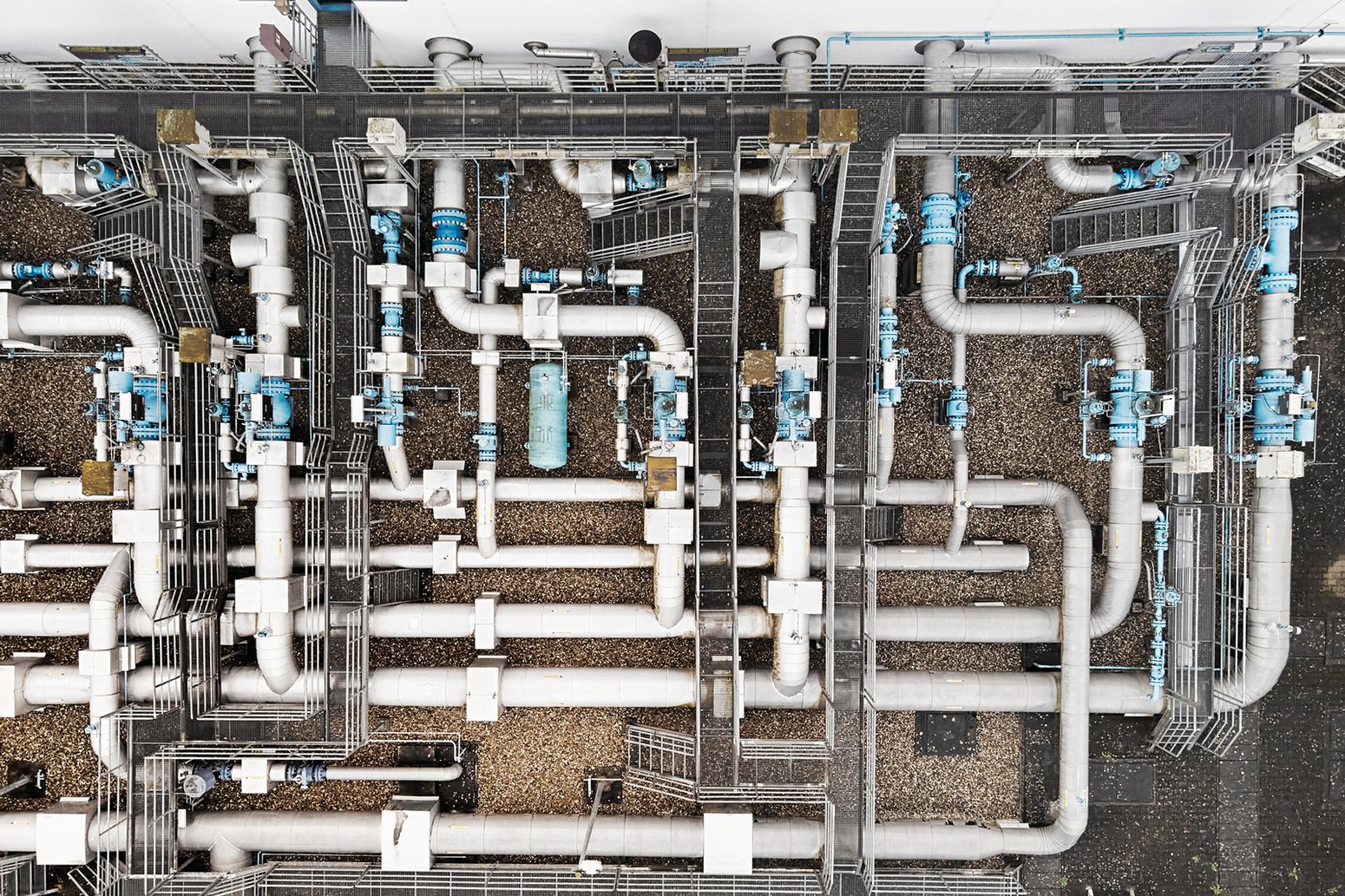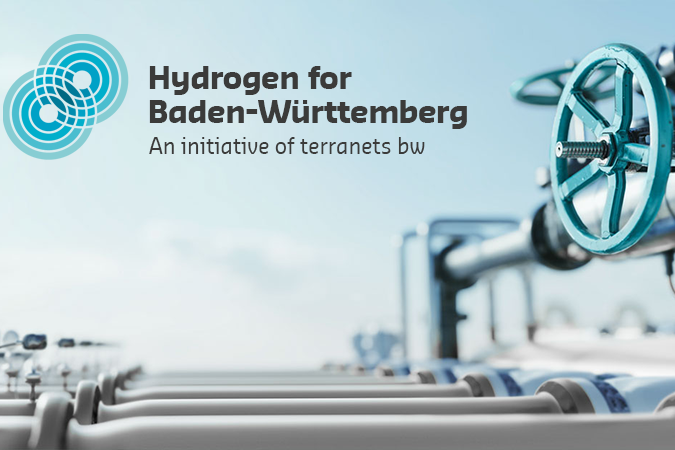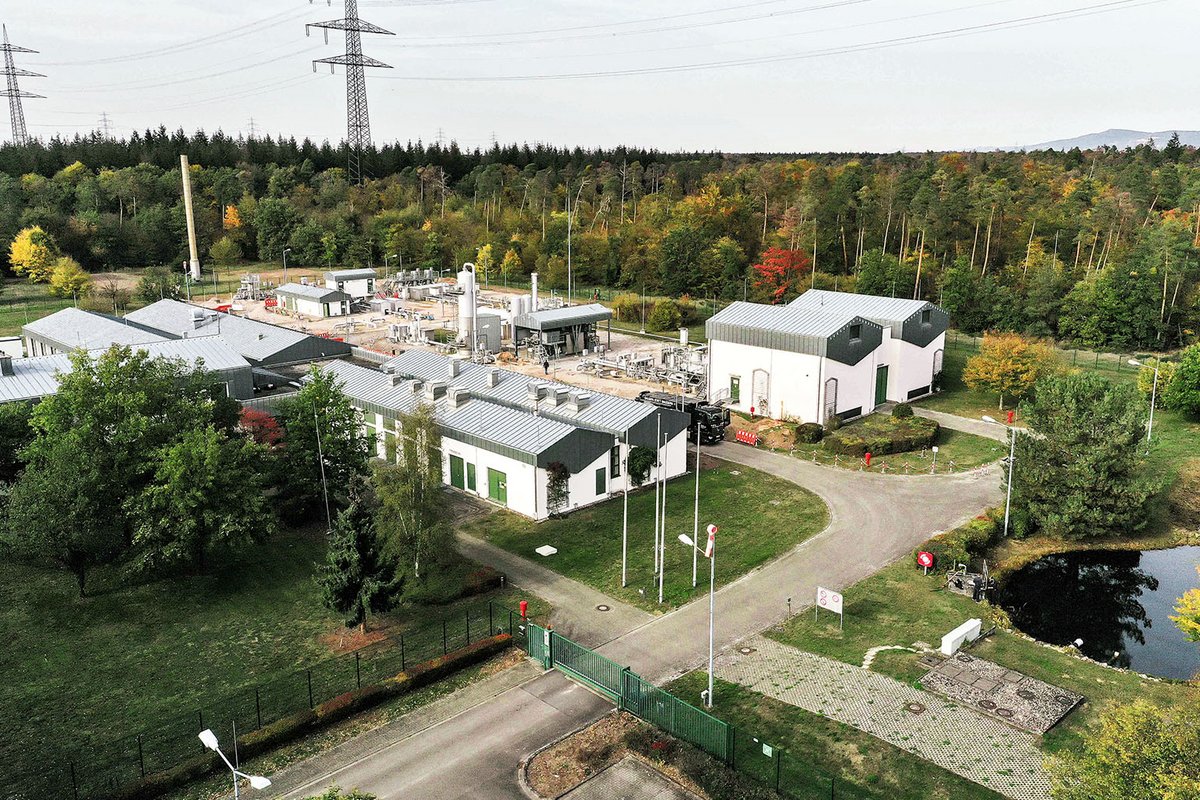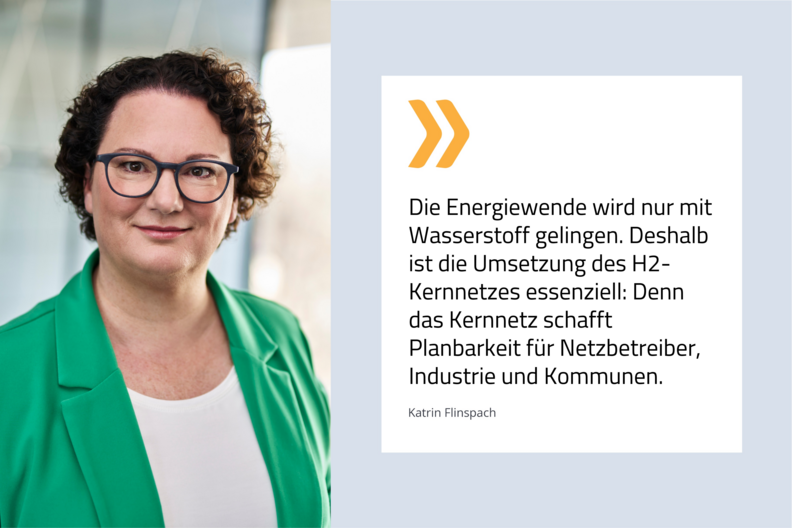The Managing Director of the gas transmission system operator terranets bw, Katrin Flinspach, emphasises the significance for the energy transition in Germany. "The energy transition will only succeed with hydrogen. And this is why realisation of the H2 core network is crucial: Because the core network creates plannability for grid operators, industry and municipalities", Flinspach points out.
The transmission system operators (TSOs), including terranets bw, have been working intensively on the modelling of the core network: A nationwide hydrogen network covering 9,700 kilometres is to be created by 2032. Costs to the amount of 19.8 billion euros are to be prefinanced by the federal government and the transmission system operators by means of an amortization account. The federal government is thus providing security for the investments made by the TSOs that should be amortised by 2055 at the latest.
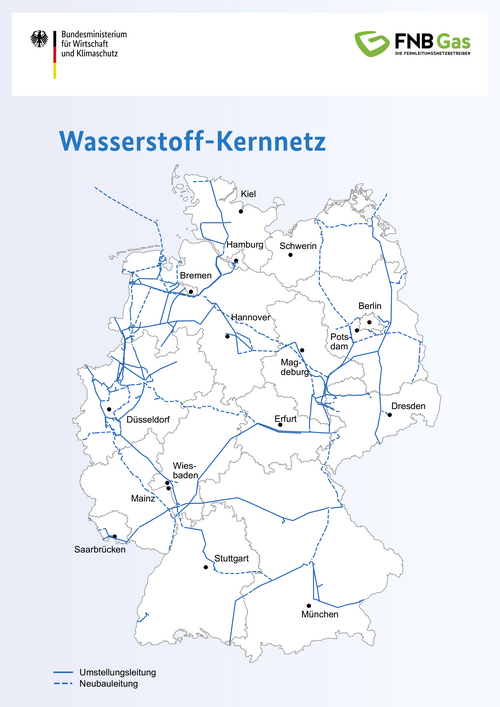
The recent demand survey conducted under the patronage of the Federal State of Baden-Württemberg confirms extensive hydrogen demand in Baden-Württemberg and highlights the necessity for the plans that terranets bw wishes to bring into the core network. Industry, suppliers and municipalities report high demand for hydrogen from 2030. The results have been published at: H2 demand survey in Baden-Württemberg: State determines H2 demand (platform-h2bw.de).
terranets bw aims to make hydrogen available via the following transport routes by 2032:
From 2028, the project RHYn Interco will create the first H2 network in Baden-Württemberg with a cross-border connection to France. RHYn Interco should also connect industrial customers near Freiburg i. B. from 2028.
As an integral part of the Flow - making hydrogen happen project, which covers 1,100 km,
the Rhine-Neckar region and the greater Stuttgart area are to be connected to hydrogen from 2030 through the repurposing of the South German natural gas pipeline (SEL),
expansion of the SEL to Bavaria by 2032 should further push the transport of hydrogen in southern Germany,
hydrogen is to be transported to Lake Constance and Upper Swabia by repurposing an existing gas pipeline.
The planning provides a roadmap for the hydrogen transformation in the coming years. "The energy transition is our shared responsibility and requires close cooperation between the Federal Government and the gas transmission system operators. The TSOs are laying the foundations developing a hydrogen economy in Germany with their core network. Implementation of the current plans, however, requires that the financing framework now created by the federal government should be designed in a way that is suitable for the capital market", states Katrin Flinspach.
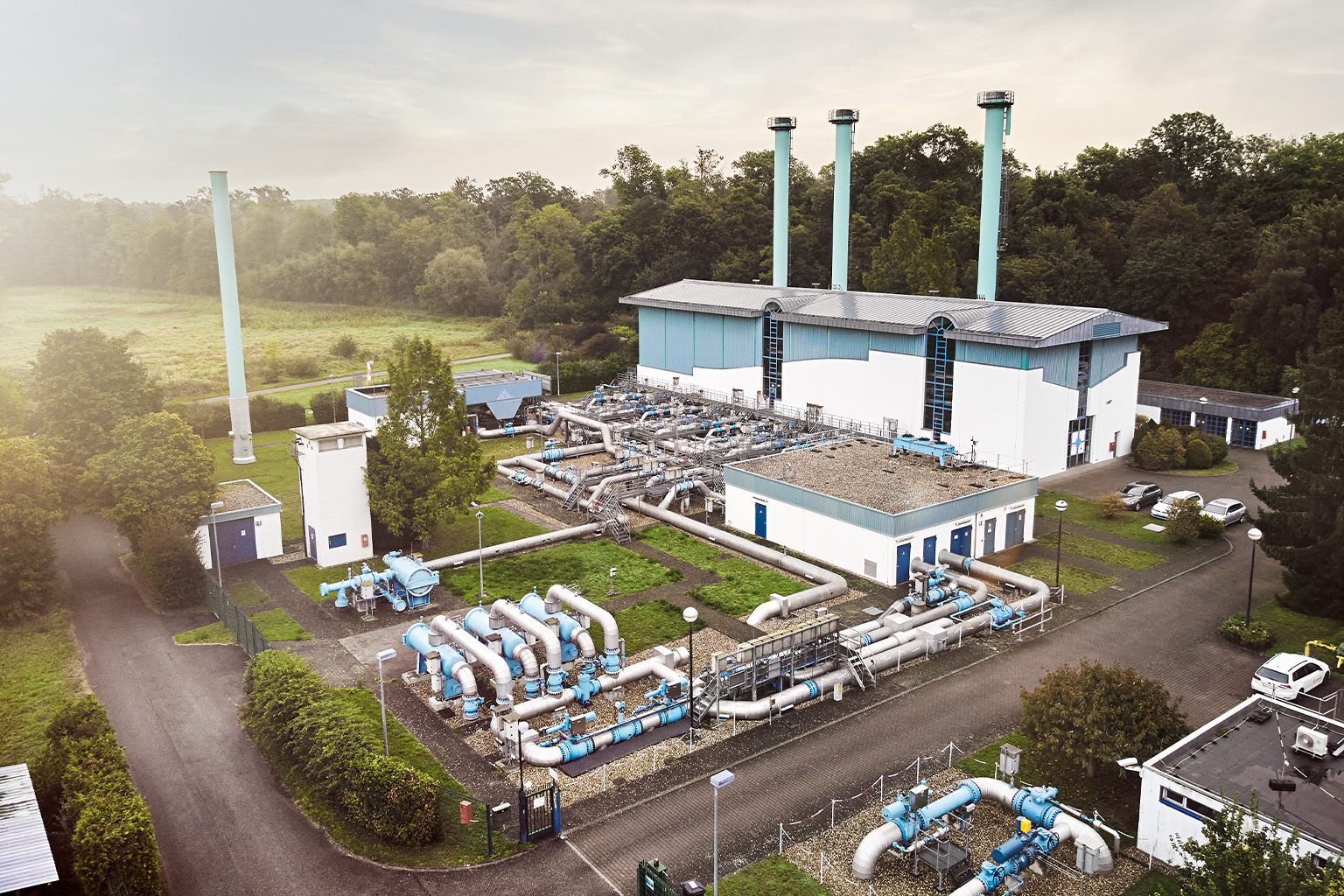
![[Translate to English:] Unser Telekommunikationsnetz](/fileadmin/_processed_/4/8/csm_Telekommunikation_Kabel_Unschaerfe_blau_gelb_terranets-bw_e68fc06931.jpg)
![[Translate to English:] Energiezukunft](/fileadmin/_processed_/c/7/csm_h2fbw-header2-fakten_initiative-wasserstoff-fuer-bw_17f6911c5d.jpg)
![[Translate to English:] terranets bw / Für Kunden / Telekommunikation](/fileadmin/_processed_/9/c/csm_Telekommunikation_Glasfaser_digital_vernetzen_terranets-bw_421f33c2f9.jpg)
![[Translate to English:] Kundenportal ConnectCapacity](/fileadmin/user_upload/Content/Fuer_Kunden/Gasnetz/TERRANETS_Bild_Interne-Bestellungen_Bestellungen_3zu2.jpg)

![[Translate to English:] terranets bw Unternehmen Visionen](/fileadmin/user_upload/Content/Unternehmen/Visionen/TERRANETS_Bild_Home_Vision_3zu2.jpg)
![[Translate to English:] terranets bw: Sehen Sie sich unsere Stellenangebote an!](/fileadmin/user_upload/Content/Karriere/TERRANETS_Bild_Karriere_Stellenangebote_3zu2.jpg)
![[Translate to English:] Arbeiten bei der terranets bw](/fileadmin/user_upload/Content/Karriere/TERRANETS_Bild_Karriere_Arbeiten-bei-Terranets_3zu2.jpg)
![[Translate to English:] Die Standort der terranets bw](/fileadmin/user_upload/Content/Karriere/TERRANETS_Bild_Was-wir-tun_Scharenstetten_3zu2.jpg)
![[Translate to English:] Studium, Ausbildung oder ein Praktikum bei der terranets bw](/fileadmin/_processed_/2/f/csm_TERRANETS_Bild_Fuer-Praktikanten-und-Auszubildende_Fuer-Schuelerinnen_3zu2_360e1e705d.jpg)
